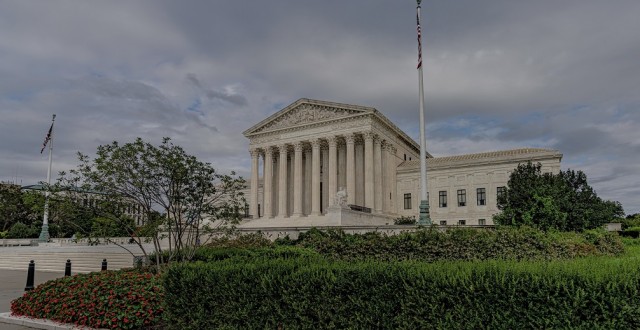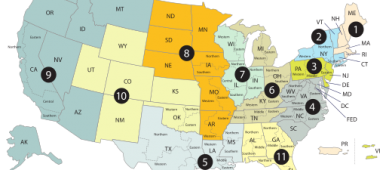
- Mediation
- Arbitration
- Court Neutrals
- Online Dispute Resolution
- Technology
- Court Decisions
- More
- Legislation
- Healthcare
- Guest Posts
- John DeGroote
- John C. Fleming
- Rick Freeman
- Professor Peter Friedman
- Honorable W. Royal Furgeson, Jr.
- James M. Gaitis
- Laura A. Kaster
- Professor John Lande
- Philip J. Loree, Jr.
- Michael McIlwrath
- F. Peter Phillips
- Professor Alan Scott Rau
- Professor Thomas J. Stipanowich
- Professor S.I. Strong
- Richard Webb
- Glen M. Wilkerson
- International arbitration
- Regulation
- Sports and Entertainment
 JAMS Welcomes Karl Bayer to its Panel of NeutralsJAMS, the world’s largest private alternative dispute resolution (ADR) provider, is pleased to announce that Karl Bayer
JAMS Welcomes Karl Bayer to its Panel of NeutralsJAMS, the world’s largest private alternative dispute resolution (ADR) provider, is pleased to announce that Karl Bayer Class Action Waivers in Arbitration Agreements: The Twenty-First Century Arbitration Battleground and Implications for the EU CountriesLinda S. Mullenix, Morris & Rita Atlas Chair in Advocacy at the University of Texas School of Law, has written “Class Ac
Class Action Waivers in Arbitration Agreements: The Twenty-First Century Arbitration Battleground and Implications for the EU CountriesLinda S. Mullenix, Morris & Rita Atlas Chair in Advocacy at the University of Texas School of Law, has written “Class Ac Picking the Proper Technological Tool for Problem-Solving in ArbitrationProfessor Amy J. Schmitz, John Deaver Drinko-Baker & Hostetler Chair in Law and Co-Director of the Translational Data An
Picking the Proper Technological Tool for Problem-Solving in ArbitrationProfessor Amy J. Schmitz, John Deaver Drinko-Baker & Hostetler Chair in Law and Co-Director of the Translational Data An SCOTUS to Resolve Circuit Split Over Transportation Worker Exemption in the FAAToday marks the start of the United States Supreme Court’s new term. During the term, the nation’s highest court will re
SCOTUS to Resolve Circuit Split Over Transportation Worker Exemption in the FAAToday marks the start of the United States Supreme Court’s new term. During the term, the nation’s highest court will re
Recent Posts
Circuit Split Over Collective Action Waivers in Employer’s Arbitration Agreement Continues to Widen
On Monday, the Ninth Circuit Court of Appeals ruled in a published opinion that a class action waiver included in an employer’s mandatory arbitration agreement violated the National Labor Relations Act (“NLRA”) and California law.
Continue reading...Update on Attorney/Client Arbitration and Handling Client Disputes
Texas attorneys who are interested in learning more about how to handle disputes with clients using arbitration are encouraged to tune in to an upcoming Texas Bar CLE live webcast on August 25th from 2-3 pm CST.
Continue reading...Fifth Circuit Again Rejects NLRB’s Position on Class Action Waivers in Arbitral Agreements
The United States Court of Appeals for the Fifth Circuit has once again rejected a National Labor Relations Board’s (“NLRB”) order stating a class action waiver included in an agreement to arbitrate violates the National Labor Relations Act (NLRA).
Continue reading...Regulating Arbitration
Rutgers Law School Assistant Professor David L. Noll has published “Regulating Arbitration,” California Law Review, Forthcoming.
Continue reading...Arbitration
Texas’ Twelfth District Court of Appeals in Tyler has ruled that a nonsignatory spouse may not be bound by an arbitration agreement his wife entered into with her employer.
Continue reading...Mediation
Apple and Psystar have agreed to a private ADR session to attempt a resolution to the ongoing lawsuit filed by Apple. It appears they opted out of the court-provided ADR options for a private mediation service. Psystar is a Florida corporation that has received some level of attention over a recent website that sold custom-built computers with Apple’s OS X operating system installed. Such setups, PCs running Macintosh operating systems, are often dubbed “Mac Clones.” Apple places legal restrictions on its software with a license agreement stating that OS X should only be run on its proprietary hardware. Psystar argues that such restrictions are unenforceable and countersued. It does strike me as strange that anyone can walk into an Apple Store and purchase a copy of OS X, but then would be restricted from installing it on their PC. Indeed, that’s what Psystar was doing – telling its customers that if they purchased OS X, Psystar would install it on the PC for free. They argue their process was an end-around the license agreement. This is a great look at the advantages of ADR, and a classic case for its usefulness. Psystar is a small company that probably doesn’t want to engage in a drawn out litigation with a monster like Apple, and the last thing Apple wants is a court opinion holding its user license agreement unenforceable. By choosing private mediation, the parties may be able to reach a private settlement that would allow Psystar to cut its losses (or even take home some winnings), and let Apple resolve the issue without showing a chink in its armor. This should be interesting as it develops. The initial report: http://www.macobserver.com/article/2008/10/16.9.shtml Another article, which contains a link to the full ADR agreement: http://news.cnet.com/8301-13579_3-10068824-37.html?part=rss A few more articles on the suit: (July) http://news.cnet.com/8301-13860_3-9991572-56.html?tag=mncol;txt (May) http://news.cnet.com/8301-13579_3-9933896-37.html?tag=mncol;txt
Continue reading...Healthcare Disputes
Legal Research
About Disputing
Disputing is published by Karl Bayer, a dispute resolution expert based in Austin, Texas. Articles published on Disputing aim to provide original insight and commentary around issues related to arbitration, mediation and the alternative dispute resolution industry.
To learn more about Karl and his team, or to schedule a mediation or arbitration with Karl’s live scheduling calendar, visit www.karlbayer.com.














